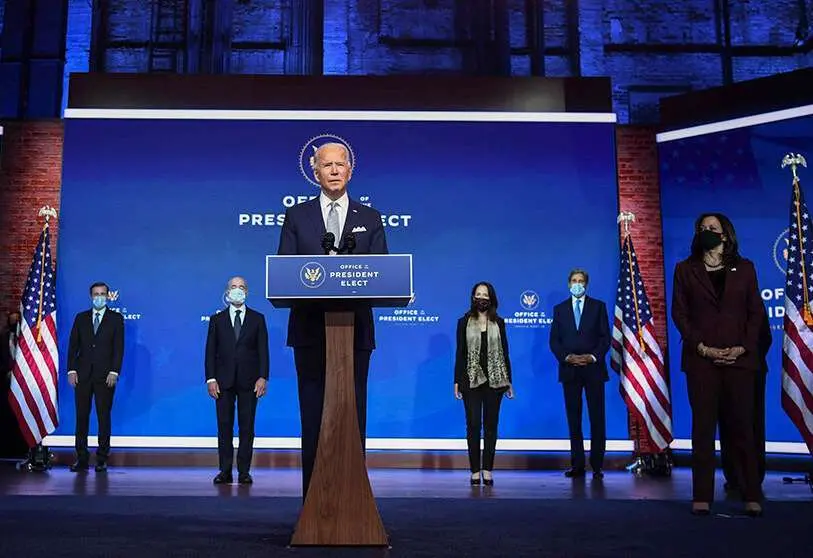Biden distances himself from Trump and outdoes Obama

The new US president, Joe Biden, was quick to roll out his new Middle East strategy. "America is back", said the new occupant of the White House. An America that, for the moment, is redrawing the contours of its international policy. The first weeks of his presidency will be remembered as a break with the Trump Administration in its logistical support for the endless war that Saudi Arabia is waging in Yemen, which has cost the lives of 100,000 civilians and caused the displacement of 8 million people. The new president's team, led by Kamala Harris, opts for a return to diplomacy. "This war has to end," Biden said.
"We are ending all American support for offensive operations in the war in Yemen including relevant arms sales," he said in his speech to the U.S. State Department. Thus, Biden not only breaks with the Trump Administration but distances himself from Obama's policies. Let us not forget that the former US president and Nobel Peace Prize laureate had helped Riyadh in its offensive against Yemen. Biden's policy also differs from that of his former running mate by accepting many more refugees in the US. "We offered safe haven for those fleeing violence or persecution and our example pushed other nations to open wide their doors, as well," he said.
But Biden does not completely turn his back on Saudi Arabia and does not forget the interests that unite the two countries. A common enemy is among them: Iran. “Saudi Arabia faces missile attacks, UAV (drone) strikes and other threats from Iranian-supplied forces in multiple countries. We’re going to continue to support and help Saudi Arabia defend its sovereignty and its territorial integrity and its people (...) This will not affect operations against al-Qaeda in the Arabian Peninsula".
It is on this last point that the Saudi foreign minister, Faisal bin Farhan al-Saud, has stressed “the Kingdom of Saudi Arabia welcomes the United States’ commitment, expressed in President Biden’s speech today, to cooperate with the Kingdom in defending its security and territory”, the foreign minister said on Twitter, without commenting on the reversal of the policy of counting the war in Yemen.
The fight against terrorism is America's workhorse. Just before the end of his term, President Trump, through his Secretary of State, Mike Pompeo, classified the Houthi rebels among the terrorist groups. Pompeo's successor, Antony Blinken, had informed Congress of his intention to remove them from the list.
The Middle East is holding its breath and Biden's forthcoming statements will be decisive for many. Palestinians are among them. However, while Biden advocates a two-state solution to the Palestinian question, he has left no doubt that he will not question the recognition of Jerusalem as Israel's capital and that the US embassy will not be relocated.
The US fundamentals remain unshaken; Biden, the man of compromise, does not intend to upset the fragile balance in the Middle East. Moreover, on the Iranian issue, the US position remains unchanged, even if Biden advocates more diplomacy and a return to the Vienna Nuclear Deal. Today Iran is asking Europe to play the role of mediator, which bodes well for a resumption of negotiations.
In an interview with CBS News and in response to a reporter's question about whether the US would lift sanctions against Iran to get it back to negotiating, the US president's answer was very clear: "No," he said. For the record, Donald Trump had unilaterally withdrawn the US from the nuclear deal in 2018. Biden, who intends to reactivate it, insists that Iran must first retrace its steps on uranium enrichment. For his part, Ali Hosseini Khamenei urged the US to lift all sanctions if it wants Iran to honour its commitments. The cat-and-mouse game is putting the Mullah's country at the foot of the wall. Meanwhile, it is Iranians who are toasting!

